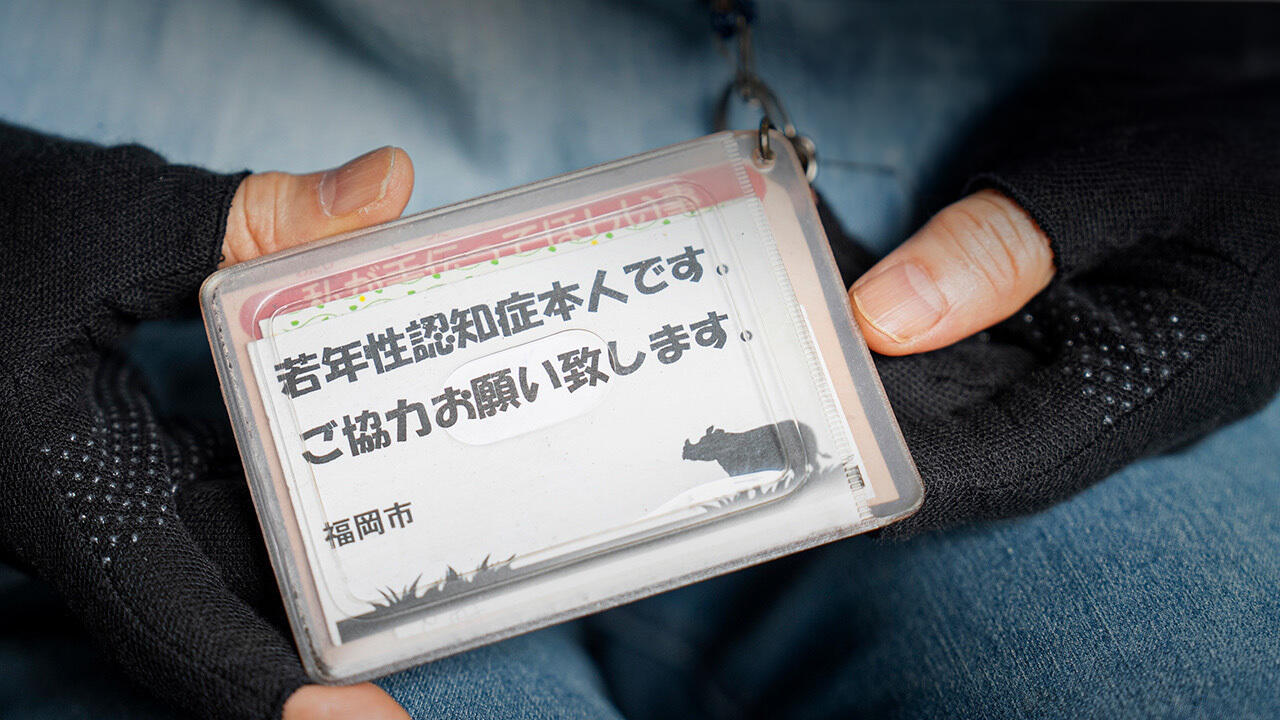
Tsugi-Coco is a watch-like personal navigation device that alleviates the worry of people with dementia getting lost while out on their own. Amid the misconceptions and stigma, Tsugi-Coco confronts the challenges of dementia head-on.
Picking the right pair of glasses
When considering dementia, eyesight offers a helpful analogy.
Take a person whose vision has worsened slightly (0.8 or 20/25). In such cases, being forced to wear glasses with very strong lenses will actually make it harder to see and cause their vision to deteriorate more quickly. By contrast, anyone with dementia is instantly marked as lacking cognitive function, no matter how mild their symptoms.
Those with milder conditions can play a more active role in society, but they must first be able to get around. This led Yamada to come up with a device focused on walking.
Project Manager Yamada, Advanced Project Promotion Div.
Older people comment that they find it hard to use smartphones or simply forget them when leaving home. That’s why I opted for a wearable device.
In the world of nursing care, most problems require hands-on solutions, but this will be difficult to sustain in aging Japan. By advancing the digital side, we may also be able to address the shortages in nursing care staff.
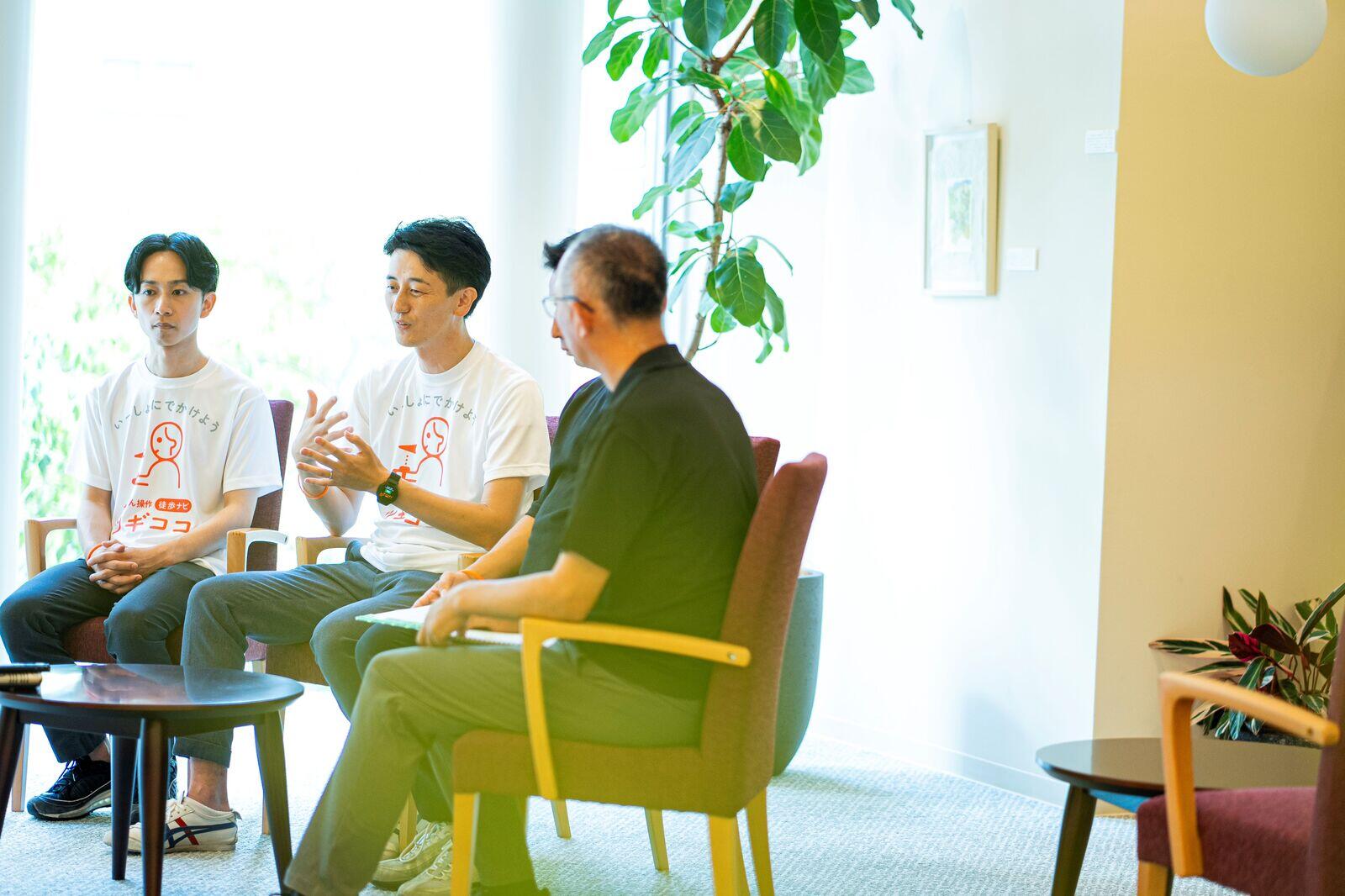
We engaged more than 100 people living with dementia around Japan to assist with trials, enabling us to make updates. Many took part not for themselves but for the sake of those afflicted in the future. I’m determined to make this work.
Toyota employs some 70,000 people in Japan, with large teams working on individual projects. Meanwhile, Yamada first proposed Tsugi-Coco three years ago through a company system for pitching new business ideas and went on to develop the device single-handedly.
Being diagnosed with dementia results in having your driver’s license revoked or suspended. Yamada is propelled by a strong desire to help those who can no longer get behind the wheel.
When we suggested that leaving Toyota might allow him to be more agile, he gave the following response:
Project Manager Yamada, Advanced Project Promotion Div.
In terms of getting these devices out into the world, I figured it was definitely better to work within Toyota.
At Toyota, we have peers across all sorts of sectors, colleagues who happily help out despite their own workloads, and managers who will give you their full backing. Lessons from the genba are fed back into the organization and turned into something bigger. That’s the kind of culture we have.
Many units also tackle social challenges, and we can do a lot by weaving them together. For instance, Tsugi-Coco could be used to call an on-demand bus and then transfer to personal mobility to get to your destination...
I couldn’t do any of this on my own, but I have the support of many people inside the company and beyond.
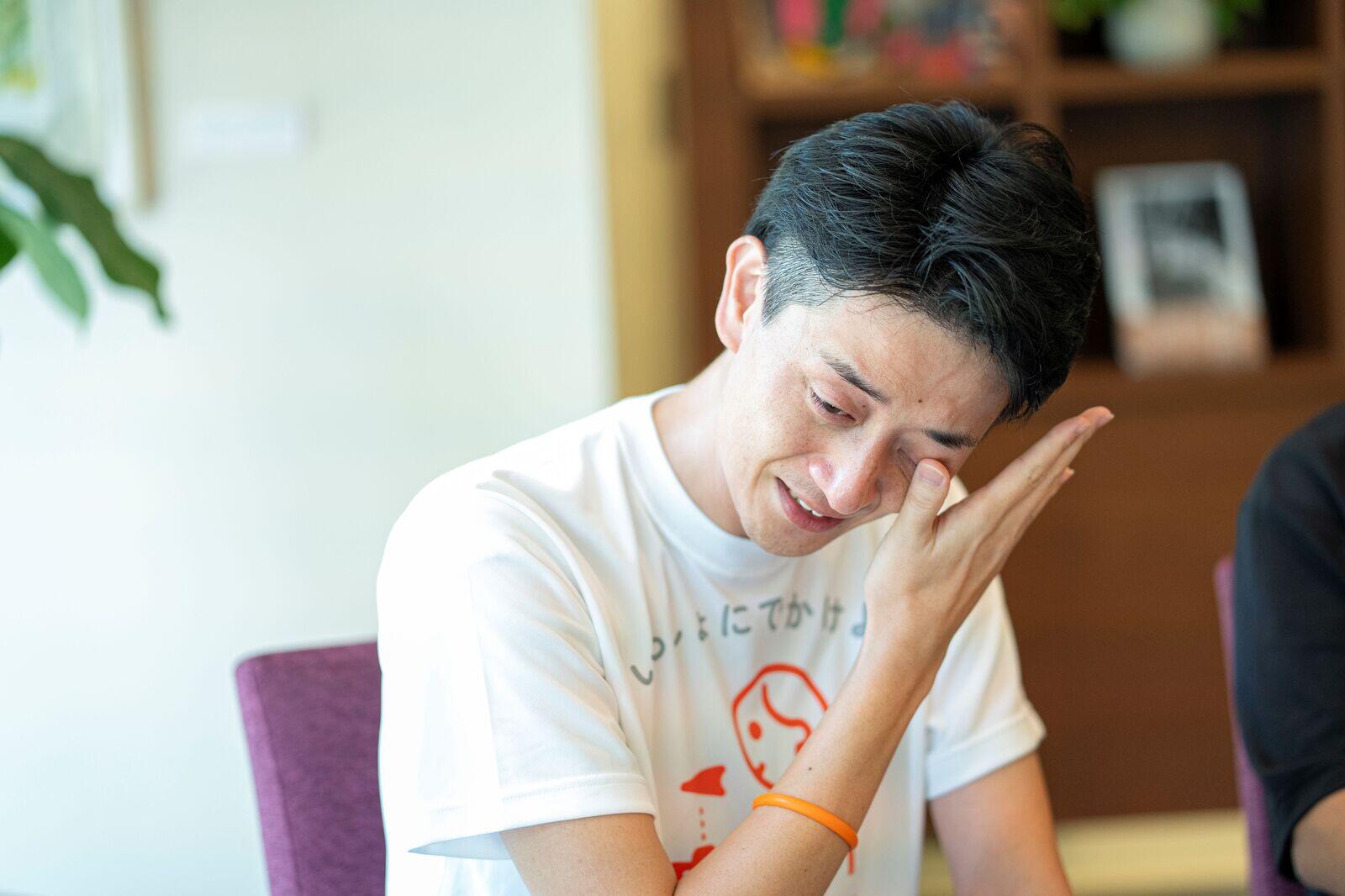
As he spoke, tears welled in his eyes. The development of a pioneering technology is fraught with hardships. Fortunately, Yamada was able to overcome them thanks to support from others. In the process, his team at the company has now grown to eight members.
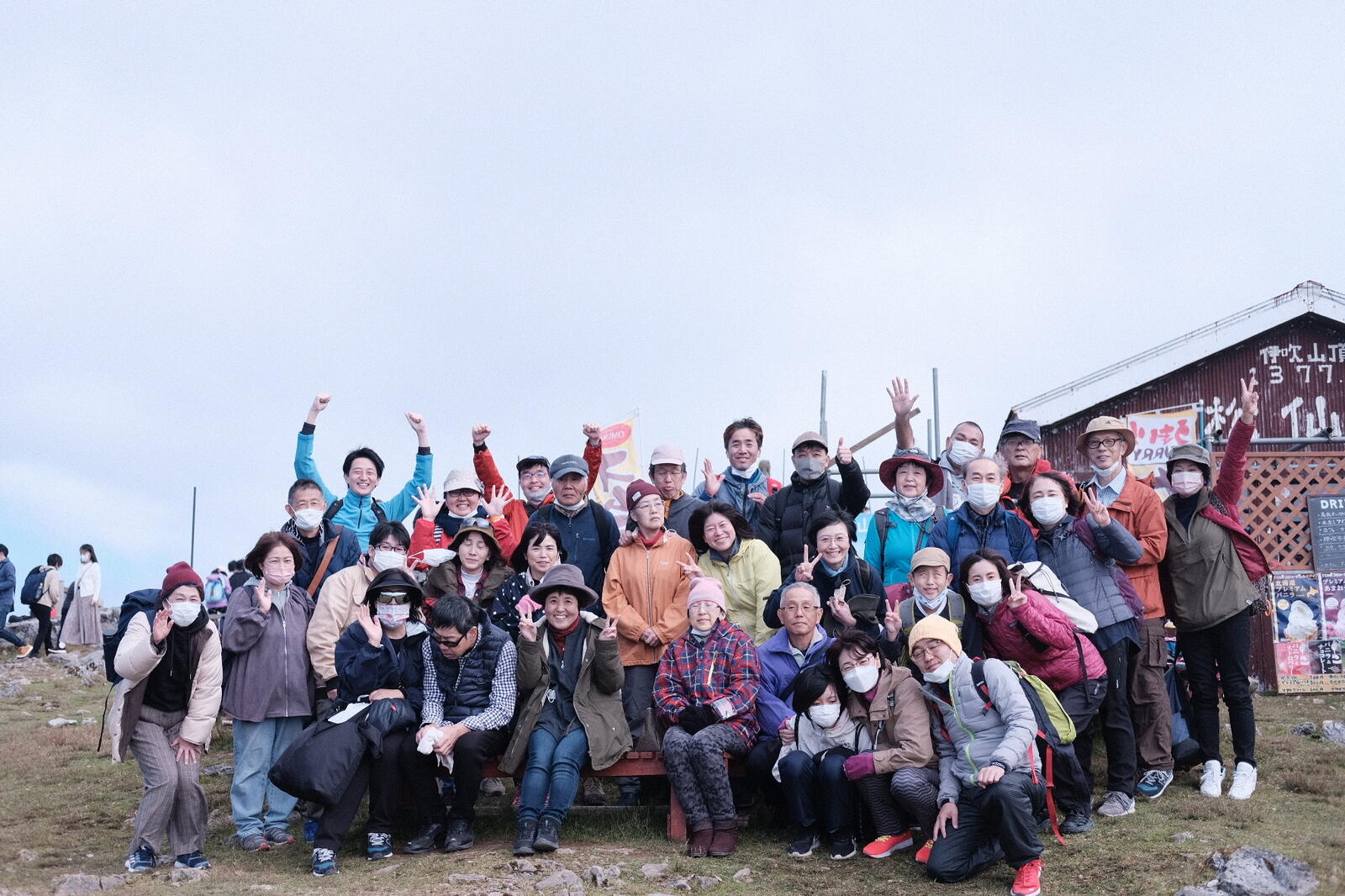
Director Tou, Fukuoka Dementia Friendly Center
In Japan, there is a history of understanding dementia as something that requires being placed into care. For that reason, many who are diagnosed do not admit it. While family members can slip a GPS tracker inside a shoe, Tsugi-Coco is something the individual chooses to wear. That’s a big difference.
Tanno echoes these sentiments.
Tanno, living with dementia
Tsugi-Coco is about providing peace of mind, not for the family, but for the wearer. Just as car navigation systems mean that people no longer get lost driving, I believe that devices like Tsugi-Coco will drastically transform the world.
“I feel like I can go anywhere”
Tsugi-Coco is also undergoing a series of trials in Fukuoka City. On the day we visited, a local resident had begun testing the device on a 10-minute walking route between her home and a hospital she had visited countless times.
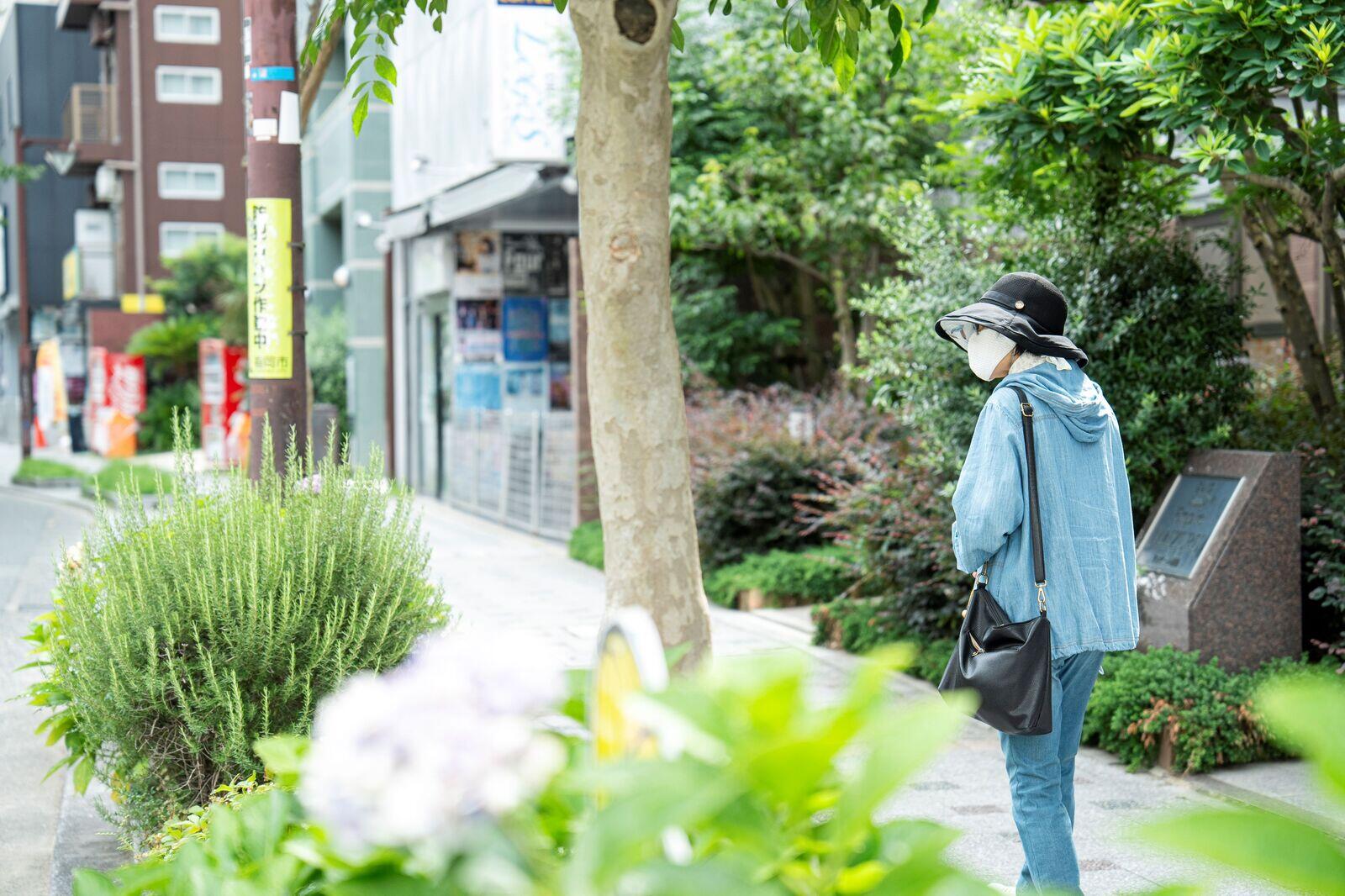
First, she headed for the hospital without the device. At each intersection, her eyes scanned left and right as though visiting this place for the first time. She would concentrate, trying intently to connect it with a memory, before giving up.
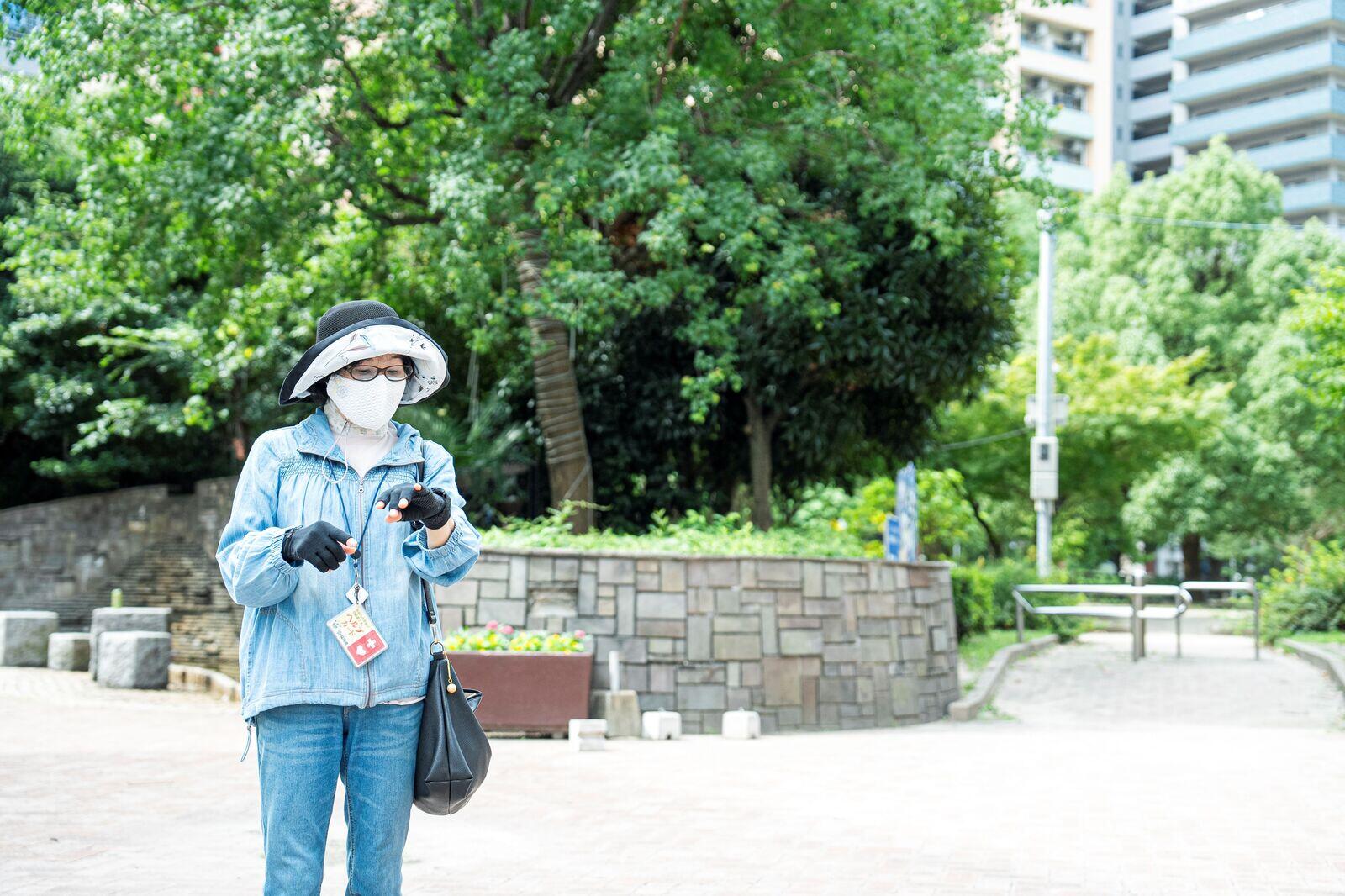
With Tsugi-Coco on her wrist, the pace picked up markedly as she simply followed the arrows to the hospital. When she overshot a turn, Tsugi-Coco brought her back on track. It seemed remarkable that a single device could make such a difference.
The next task was a daunting challenge: catching a bus to a place she had never visited.
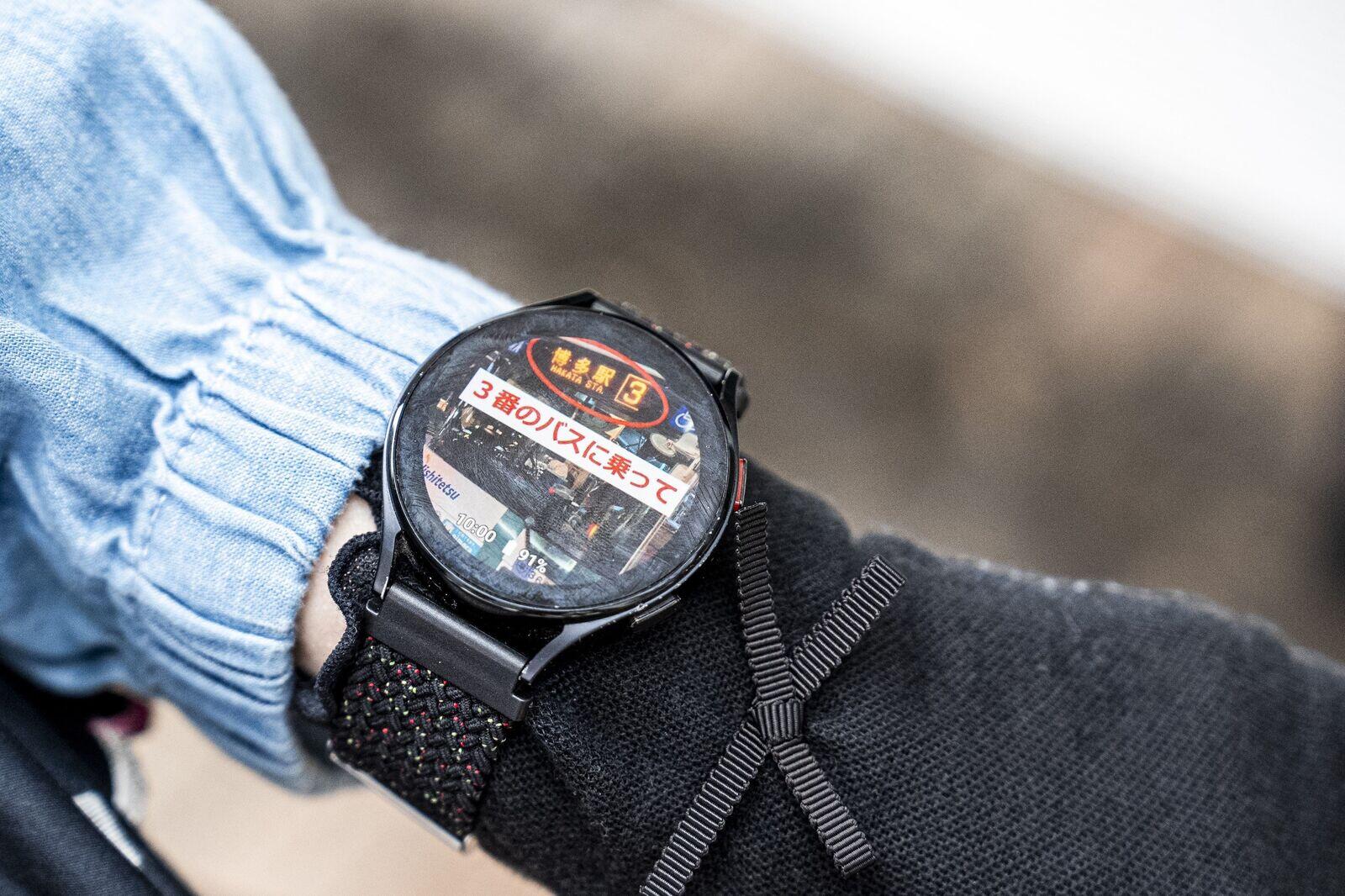
To avoid mistakenly boarding one of the many other buses streaming past, the screen showed both a picture of the stop and the route number. Once on the bus, Tsugi-Coco would tell her when to get off so she didn’t need to worry.
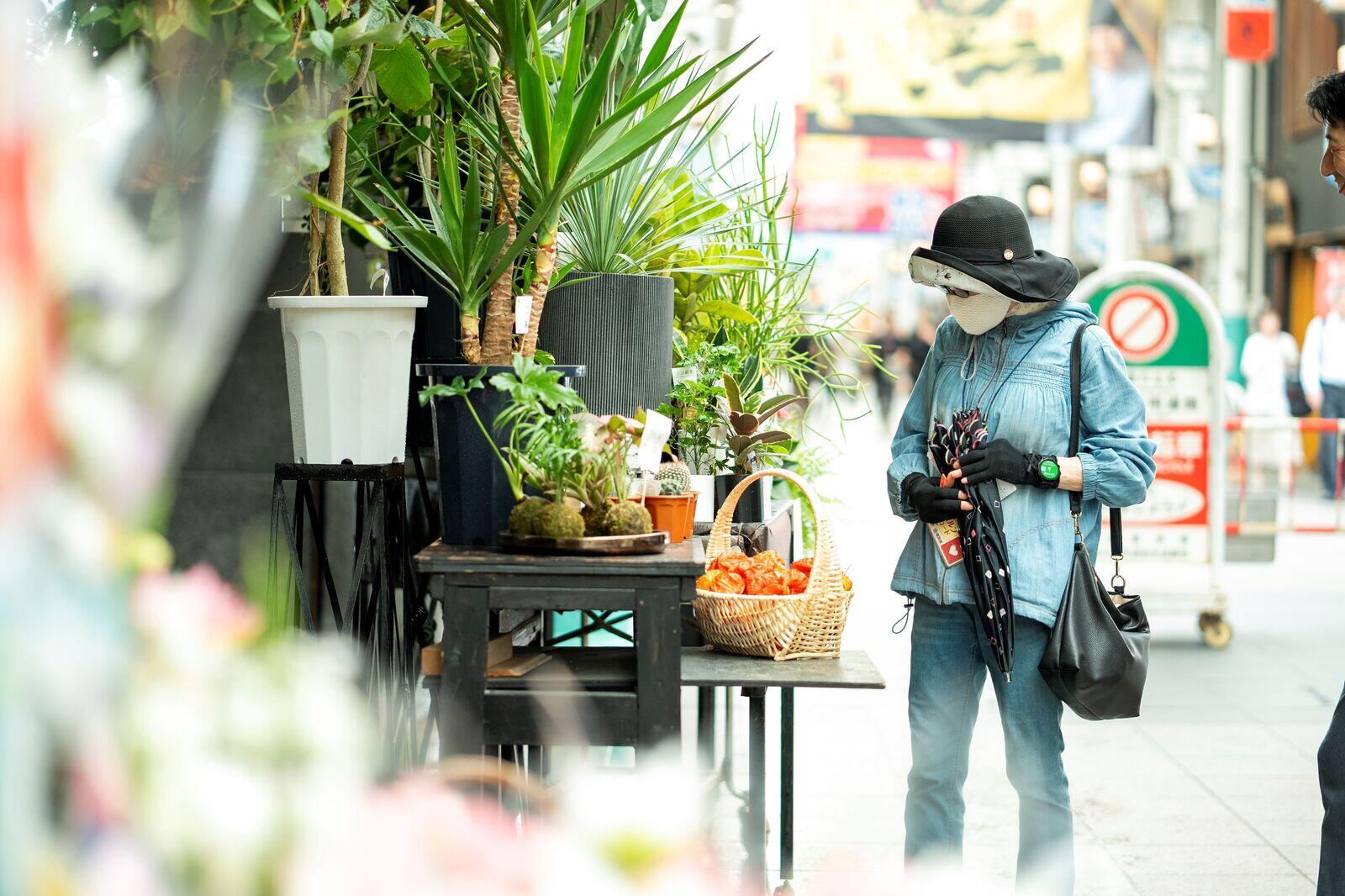
Along the way, she strolled down a shopping arcade, stopping off at a dango stall and a flower shop. With Tsugi-Coco she seemed to feel at ease, enjoying the journey before arriving safely at the Hakata Machiya Folk Museum.
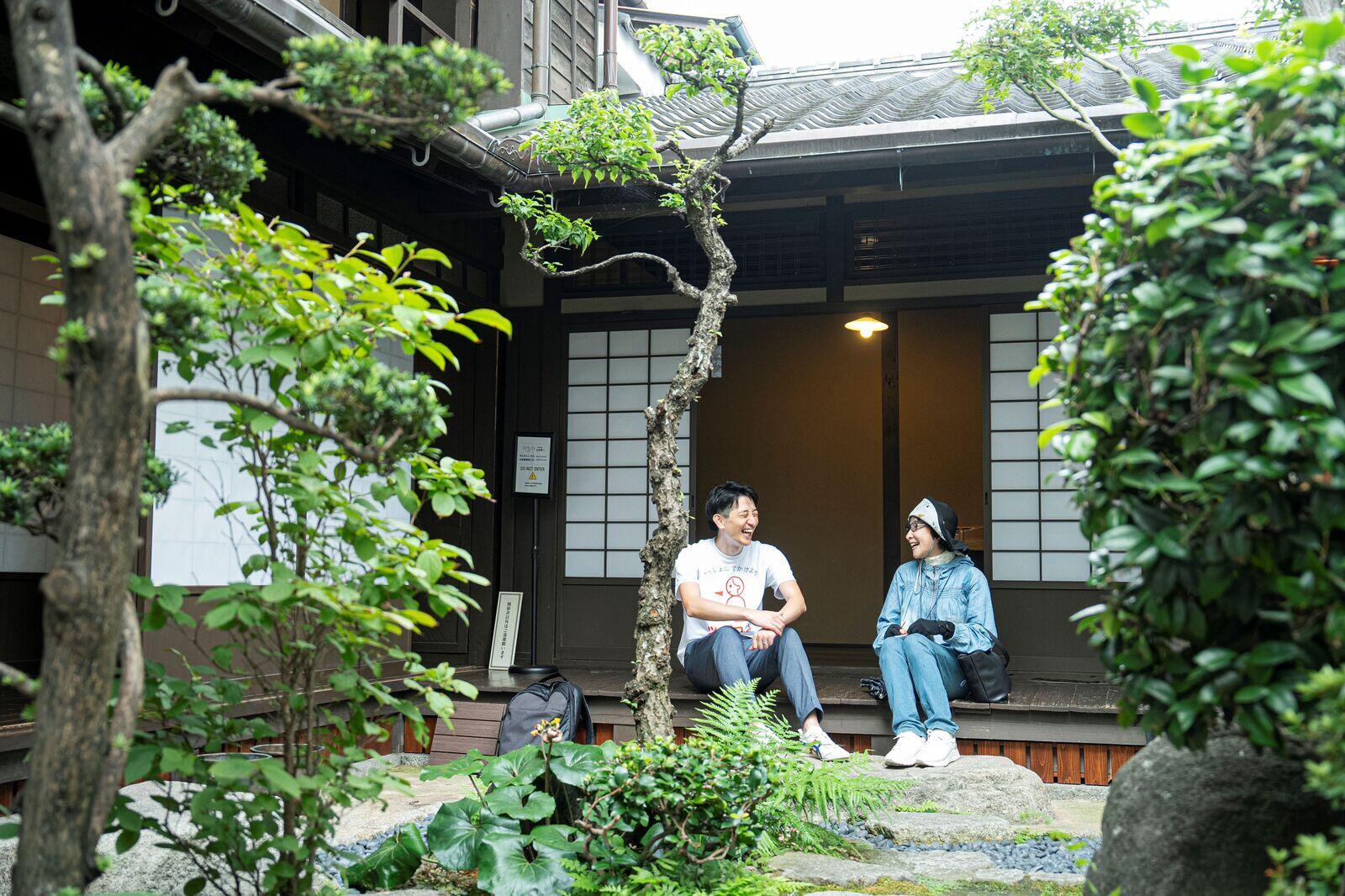
“I’d like to play hopscotch on these stones,” said the participant, smiling contentedly as she gazed out at the garden. “I feel like I can go anywhere.”
“When in doubt, all I had to do was look at the screen so I could just walk on without worry,” she remarked, beaming. “I had given up on venturing out by myself, but now I can visit new places on my own. I can’t believe it’s possible.”
She’s already excited for the next outing: “I want to try the seafood restaurant nearby.” Yamada also shared his thoughts after following her progress.
Project Manager Yamada, Advanced Project Promotion Div.
Testing in real situations revealed many areas that I instantly wanted to improve, such as the watch screen responding when brushed against a long sleeve. Even on a 10-minute walk, you can stop to talk to other people or enjoy the season’s flowers. I gained a renewed appreciation for getting around on foot.
Given all the people who have assisted me and who are looking forward to using the device, I’m eager to get it out there as soon as possible.
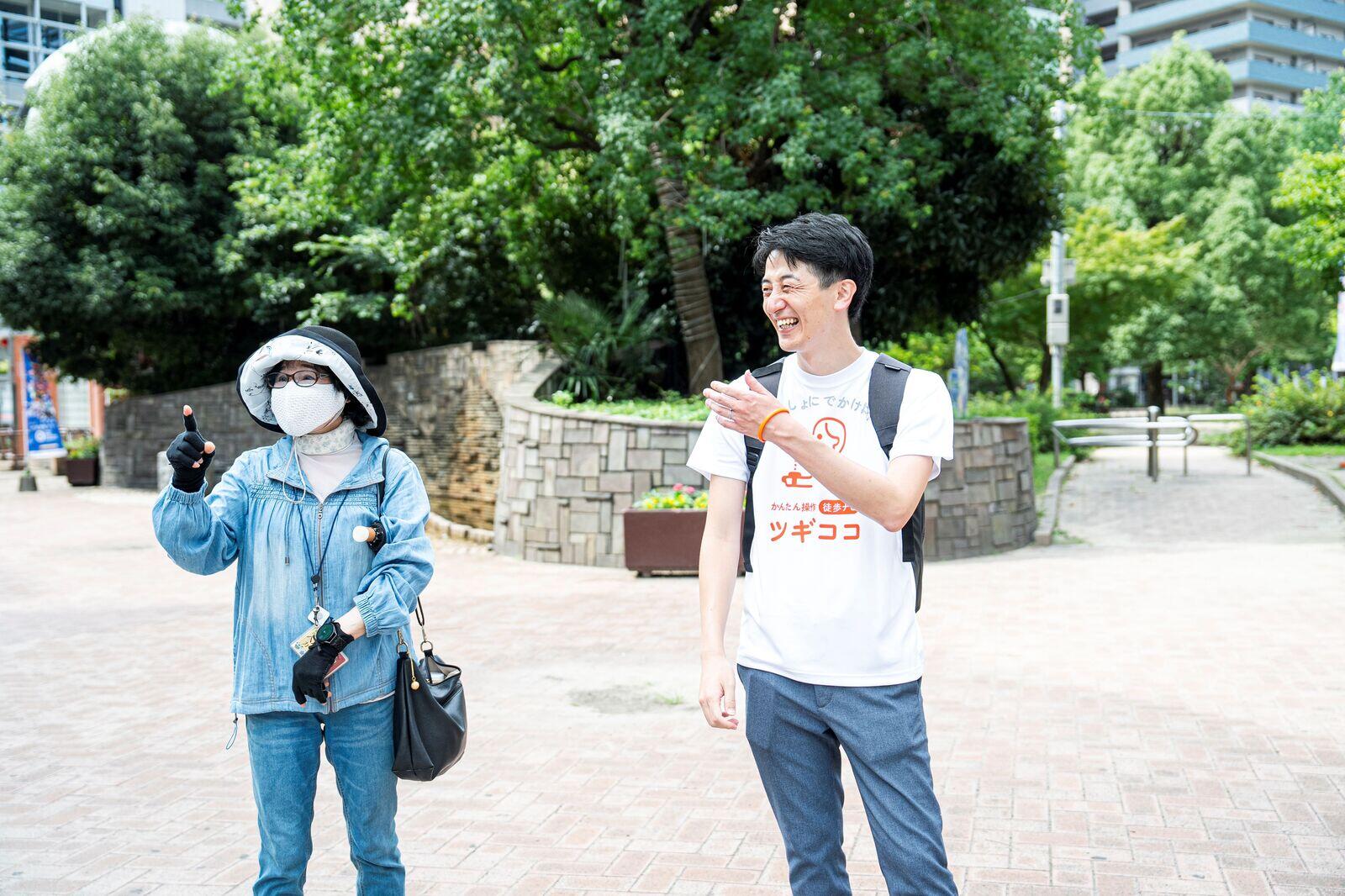
Yamada plans to conduct trials with healthcare facilities before aiming for a small-scale rollout in fiscal 2025. Dementia can afflict anybody. That’s why having something like Tsugi-Coco up our sleeves is a great source of reassurance for all.
Yamada and his team are working hard to offer peace of mind and help people live in their familiar surroundings for as long as possible. Because dementia or not, one never forgets the joy of being out in the world.

